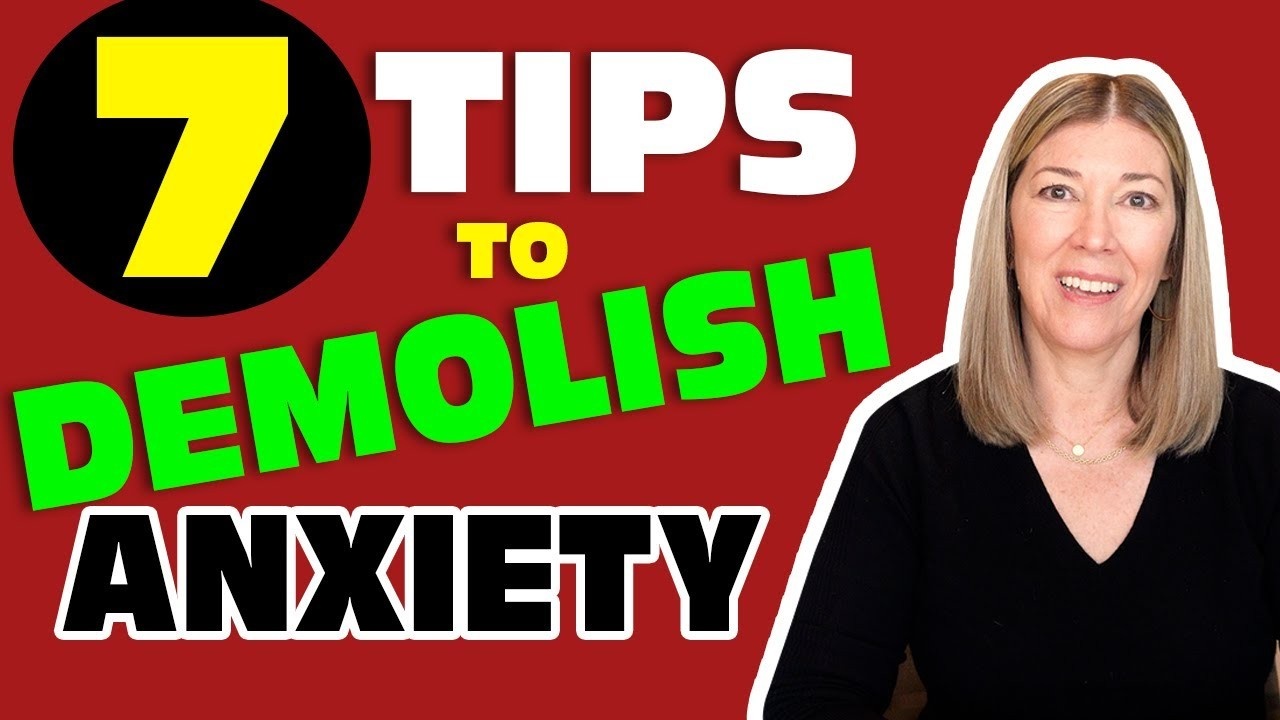
7 Surprising Tips to Demolish Anxiety
Anxiety is a common condition that affects millions of people around the world. It can manifest as constant worry, catastrophizing, and a preoccupation with worst-case scenarios. Anxiety often comes with physical symptoms such as tension, nervousness, sweating, nausea, digestive problems, and sleep disturbances. If you're struggling with anxiety, you're not alone, and there are effective ways to manage it. In this blog post, we'll share seven surprising tips to not only calm your anxiety but to demolish it.
1. Welcome Your Anxiety:
The first step in managing anxiety is to change your perspective on it. Instead of viewing anxiety as something to be feared and avoided, consider it a normal human experience. When anxiety symptoms arise, welcome them as a part of your life. By doing so, you signal to your brain that you're not bothered, and this can help calm your anxiety.
2. Identify and Label Your Feelings:
When you notice anxiety symptoms or anxious thoughts, take a moment to identify and label them. This process, known as cognitive diffusion, helps separate you from your anxiety. By acknowledging what you're feeling or thinking, you gain a better understanding of your anxiety and can address it more effectively.
3. Be Non-Reactive:
Resist the urge to react immediately when anxiety strikes. Avoid rushing to use relaxation techniques, supplements, or medications in the heat of the moment. Instead, make a conscious decision to be non-reactive. This means not engaging in behaviors that aim to eliminate anxiety right away. Be patient and let the anxiety pass on its own.
4. Sing Your Worries Aloud:
A quirky yet effective technique is to sing your worries or anxious thoughts aloud. Use a familiar tune or create your own melody. Singing your fears can confuse your brain and make it perceive the anxiety as less threatening. It's a form of cognitive diffusion that can help reduce anxiety's grip on your mind.

Nothing is worse than feeling unsafe in your body, like you are a victim of your fear and not in control. You have come to the right place. Learn how to take back your freedom from high anxiety, bodily sensations and panic.
5. Embrace Psychological Flexibility:
Psychological flexibility is the ability to be willing to endure discomfort for something you value. Instead of avoiding situations that trigger anxiety, embrace them. Recognize that discomfort is a part of growth, and by facing your fears, you're taking a step towards personal growth and resilience.
6. The "I AM" Method:
In the heat of anxious thoughts or sensations, use the "I AM" method:
- Identify: Recognize the anxious thought or sensation.
- Allow: Allow it to be there without reacting.
- Move your focus: Shift your attention to something in the present moment.
- Move on: Continue with your day without dwelling on the anxiety.
This technique helps you become more mindful and less reactive to anxiety.
7. Stress Management vs. Anxiety Response:
Lastly, it's crucial to differentiate between managing stress as a daily practice and reacting to anxiety in the moment. Stress management techniques like diaphragmatic breathing, meditation, exercise, and self-care are valuable for overall well-being. However, avoid using them as a quick fix to eliminate anxiety when it arises. Doing so can reinforce the idea that anxiety is bad, making it worse.
Managing anxiety is a journey that requires patience and self-compassion. By changing your attitude towards anxiety, being non-reactive, and embracing psychological flexibility, you can take significant steps towards demolishing anxiety's grip on your life. Remember that there's no perfection in treating anxiety, and it's okay to seek professional help if needed. With time and practice, you can train your brain to feel safe and reduce anxiety's impact on your life.
Let's Keep in Touch
Subscribe to My Newsletter
We hate SPAM. We will never sell your information, for any reason.







